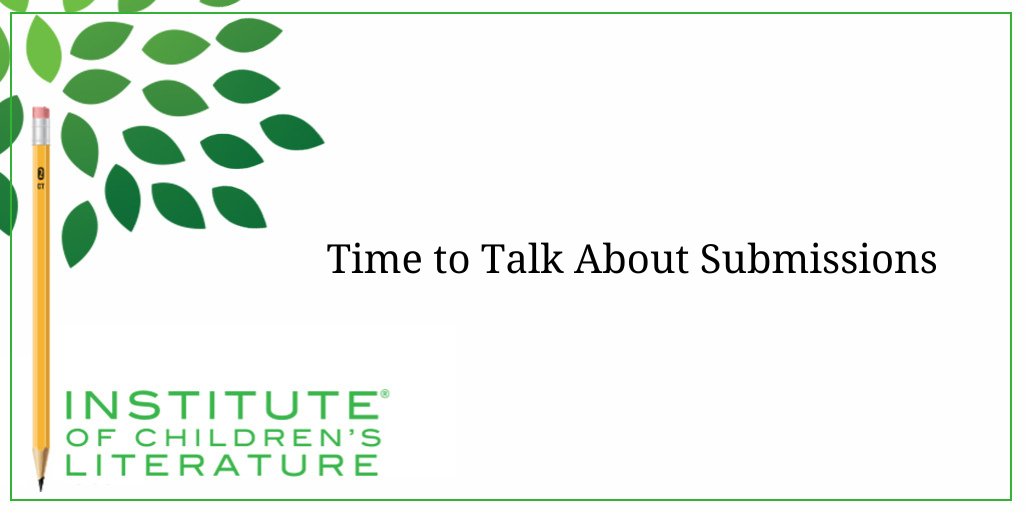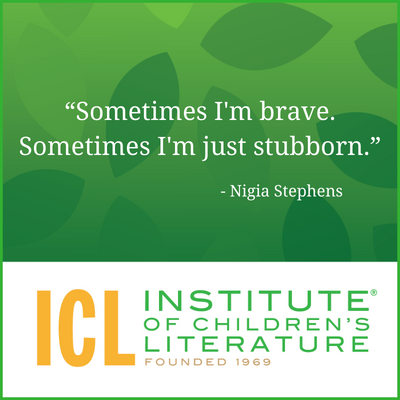
5 Ways Writers Can Prep for 2025 Goal Setting
Before we roll on to the new writing year, let’s harness our optimism for the blank slate before us and prepare for our 2025 Goal Setting just for writers.

We teach our students how to write and get published!
View our Course Catalog >
Writing is an interesting avocation, mostly because it has so many moving parts. You create worlds in your head, call people into existence, give them something to say and something to do. That can be hard or easy, depending on the moment, but it’s a very personal, subjective thing. But there are other parts to this work.

Then when you’ve done all these incredibly disparate things that take totally different skillsets, then you have to figure out how to get this piece of work in print. You have to submit it. You have to do it wisely and well. And you have to be so very brave. I don’t find writing takes much courage, but submission, whew, submission really shows you what you’re made of.
There’s a school of thought in submissions that says that many brilliant pieces of writing were rejected five, ten, fifteen or more times, so the best thing for a writer to do is to send every submission to everyone, shotgun style, to shorten the process. The problem with that is that thinking that way means overlooking how submissions and acceptance works. The writing you submit to a publisher might be amazing and still not work for that specific publisher. So no matter how good something is, if it hits the desk of a publisher where it will not work, it will be rejected. Publishers have needs, missions, visions, and product lines, because that gives them a specific place and identity. So rejections aren’t proof that editors lack the ability to judge what’s good. Rejections don’t mean only people with connections get published. Rejections merely mean that the piece you sent doesn’t suit the place you sent it at the time they read it. That’s really about it. Other factors may be at play, but the only sure thing is that it didn’t suit that publisher at that moment.
So, doesn’t that only strengthen the need to shotgun submissions to everyone? Not really. See, the problem with the scattershot approach is that lots of people used it. And as submitting moved into an electronic world, this scattershot submissions method grew easier and easier for writers. Unfortunately it didn’t grow easier at all for editors and agents. Drowning in submissions didn’t suddenly make agents wealthy enough to hire rooms full of assistants to weed out the submissions that were flatly inappropriate. Drowning in submissions didn’t suddenly make publishers want to double or triple their staff in order to have people whose sole job was to read all the submissions coming in. In reality, publishing and agenting has required tightening belts, not loosening them. Today, reading submissions is something crammed into the free moments of an editor’s or agent’s day, not something that gets dedicated time, space, and energy. Shotgun submissions drowned publishers and agents in inappropriate manuscripts that weren’t targeted in the slightest, manuscripts that could never work for the publisher reading them.
The result of all that shotgun submitting was the closing of submissions doors. More and more publishers simply decided not to deal with it anymore. They closed the doors to anyone that didn’t have an agent (and usually an agent with some kind of real connection with an acquiring editor). Some kept the door open the slimmest of cracks to editors met at workshops or conferences, because editors really do want to find new talent, they simply don’t have time to do it when they’re being drowned in submissions. So the tsunami redirected onto agents, forcing many to close their doors as well. Sending things out indiscriminately was a bad idea back when it was “the thing to do” and these days, it’s not even a possible idea.
As I mentioned, editors still want to find new talent. They simply do. People don’t go into publishing because they want a cushy office and piles of money, because that doesn’t happen. People go into publishing because they love books and they love bringing brilliant books to life. They love making good books better. They love knowing they had a hand in a book that ends up changing lives. They want to do that. And agents are the same.
If you have written something terrific, they wish you the best, even if the work isn’t right for them. And if it is right for them, they really hope to have a chance to read it and accept it. And this motivation, which is strong in the industry, is what is keeping the doors open, even if they’re only open with slim cracks.
It does mean that we need to be wise about submissions, more now than ever before. We need to simply accept the fact that we need to draw on the skills we built researching during the writing process and apply those same research skills to submissions. Researching publishers. Researching agents. Building our own lists of places that could be a good match, because our work fits there in spirit, in approach, in vision, in whatever sets that publisher apart. And to do that, we also need to draw on that objectivity that helped us revise and polish our work.
We use that objectivity to deep dive in and truly understand this thing we’ve created. Understand not simply that we love it, but that it has themes, views, slants, ideas, elements that will make it fit for some publishers and not others, that make it fit for some agents and not others. Then we draw on that creativity to come up with the very best way to describe this work, because the best way to describe it brings out the core of it, the heart of it, and the facts of it using lively, expressive writing.
This process isn’t easy, but it is do-able because it pulls on skills we built up by creating the work in the first place. If we’ve created publishable work, then we already know how to be objective—otherwise we’ve only created interesting material that needs a lot more time in revisions (and if that’s the case, we should go back and keep revising until the process both improves the work and teaches us how to be more objective).
If we’ve created publishable work, then we already know how to research—otherwise we’ve only created potentially-flawed material in dire need of a fact checker. If we’ve created publishable work, then we have the facility and creativity with words that will let us tell someone about this work in engaging, tempting, delicious ways.
In childbirth, there’s a period of the process known as transition. Transition is the time just before the baby is born. It’s the hardest part and demands the most of the mother at a time when she’s exhausted, physically and emotionally. It hits when you have the least confidence that you’re going to come out of this process alive. In some ways, submission is the transition phase of publishing. It’s hard emotionally. It requires work and effort. And we really don’t enjoy doing it. Having had a baby, I can assure you that there isn’t one single part of transition that I enjoyed other than it being over. In fact, the strongest thing you feel in transition is the need to have it be over.
Whenever we experience something exhausting and painful, we want to get it over. Now, when you’re birthing a baby, you really can’t do much to rush to the end. You are forced by physical circumstance to put in the time and effort. Unfortunately, as writers, we can rush this transition. We can decide it’s too much work to find out real information about agents. We can decide we have no real way to understand what specific publishers might want to see our piece. We can then just make up a list and start sending it out while hoping for the best. And sometimes you can luck into making the right connection. Hey, luck can be a factor. I’ll never argue it doesn’t play a part. After all, someone wins the lottery, right? But it’s not the best way to make money. And luck is not the best way to handle submissions. Research, objectivity, and effort, even when you’re really tired of the whole process, is the best way to handle submissions.
It’s easy to get overwhelmed in the submissions process. I know, I’ve been there. In the coming months, we’re going to talk about some specific steps to the submissions process, some active ways to make wise submission decisions. We won’t be able to talk about ways to make submissions easy. It’s mostly not going to be easy. But in the end, it is going to be worth it. So get your research brains in gear, rev up your objectivity, and let’s take your writing skills for a drive in the challenging process we call submissions.
With over 100 books in publication, Jan Fields writes both chapter books for children and mystery novels for adults. She’s also known for a variety of experiences teaching writing, from one session SCBWI events to lengthier Highlights Foundation workshops to these blog posts for the Institute of Children’s Literature. As a former ICL instructor, Jan enjoys equipping writers for success in whatever way she can.

Before we roll on to the new writing year, let’s harness our optimism for the blank slate before us and prepare for our 2025 Goal Setting just for writers.

Writers can be thin-skinned when it comes to getting feedback on their work. Let’s look at 4 ways to positively deal with constructive criticism!

Rejection is part of the territory when it comes to being a writer. Today we offer reflection for writers to help redirect your efforts after a rejection.
1000 N. West Street #1200, Wilmington, DE 19801
© 2024 Direct Learning Systems, Inc. All rights reserved.
1000 N. West Street #1200, Wilmington, DE 19801
© 2024 Direct Learning Systems, Inc. All rights reserved.
1000 N. West Street #1200, Wilmington, DE 19801
© 2024 Direct Learning Systems, Inc. All rights reserved.
1000 N. West Street #1200, Wilmington, DE 19801
© 2025 Direct Learning Systems, Inc. All rights reserved.
1000 N. West Street #1200, Wilmington, DE 19801
©2025 Direct Learning Systems, Inc. All rights reserved. Privacy Policy.
8 Comments